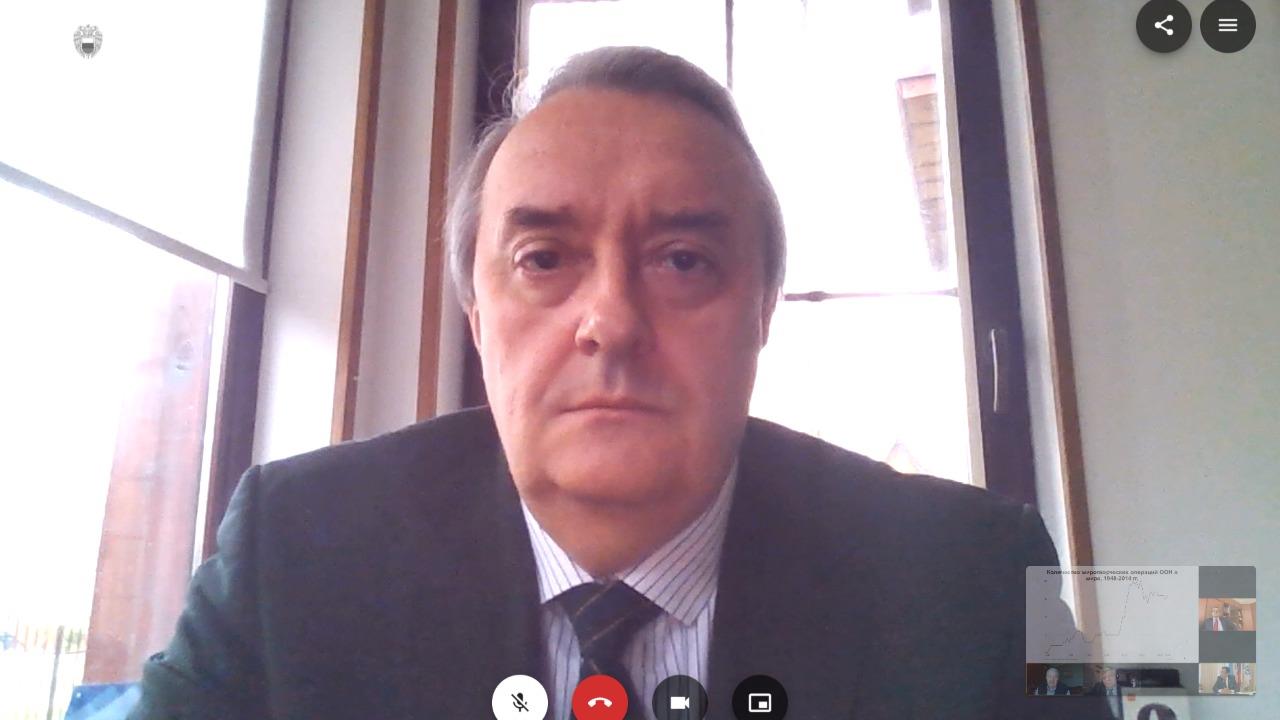Head of FAO Moscow Office Takes Part in Federation Council Round Table on UN’s 75th Anniversary

Photo: ©FAO/Oleg Kobiakov
Oleg Kobiakov, Director of the FAO Liaison Office with the Russian Federation (FAOLOR), participated today in a virtual round table at the Federation Council dedicated to "75 years of the United Nations: lessons of history and modern challenges and threats to international security".
The event moderated by Konstantin Kosachev, Chairperson of the Council of the Federation Committee on Foreign Affairs, was attended by renowned Russian diplomats, representatives of the scientific and expert communities, and UN specialized agencies. Sergey Vershinin, Deputy Minister of Foreign Affairs of the Russian Federation, made the keynote presentation.
On behalf of Director-General Qu Dongyu, FAOLOR Director Oleg Kobiakov congratulated the participants on the notable anniversary of the United Nations; he emphasized the strong connection between the mission of the UN and that of FAO, one of the most representative specialized agencies within the UN system, which celebrated its 75th anniversary a week earlier. “The fact that FAO was born before the "big UN" is deeply symbolic and underscores that the clearly formulated unifying agenda of the international agricultural and food organization was shared by all states of the anti-Hitler coalition”, the FAO representative underlined.
“For the past 75 years of its existence, FAO has moved closer to the goal of eradicating hunger: over the past twenty years, the number of hungry people has decreased by 330 million, from over one billion to 690 million”, said the FAOLOR Director. “At the same time, today's figures give no grounds for optimism because the scale of hunger continues to grow, with the number of undernourished people increasing by 10 million a year and the COVID-19 pandemic threatening to tip up to 132 million more people into chronic hunger by the end of 2020. The world is behind schedule in terms of achieving the interim targets on nutrition of the 2030 Agenda, but the historic goal of ending hunger is possible to achieve by that date, though this would require determined and concerted efforts by Member States.
According to the Director of FAO’s Moscow Office, the decision of the Norwegian Nobel Committee to award the 2020 Nobel Peace Prize to the World Food Programme (WFP) was objective and timely, and concentrated public attention on the issue of hunger on the planet and the dedication of the three United Nations Rome-based Agencies – FAO, WFP and IFAD.
Oleg Kobiakov expressed gratitude to the Russian Federation for supporting this work; the financial contribution of the country to WFP exceeded USD 60 million this year, and approached USD 30 million in the case of FAO, including the significant and very timely voluntary contribution of USD 10 million to support the fight against locust plague in East Africa. He encouraged the Russian Federation to consistently scale up these donor efforts.
Other speakers from the UN and its specialized agencies’ representations in Russia included Vladimir Kuznetsov, Director of the UN Information Centre in Moscow; Alexander Averchenkov, Head of the United Nations Development Programme (UNDP) Office for Partnership Support in the Russian Federation; Vladimir Moshkalo, Director of the United Nations Environment Programme (UNEP) Office in Russia; Vanno Noupech, Head of the Office of the High Commissioner for Refugees (UNHCR) in Russia.
